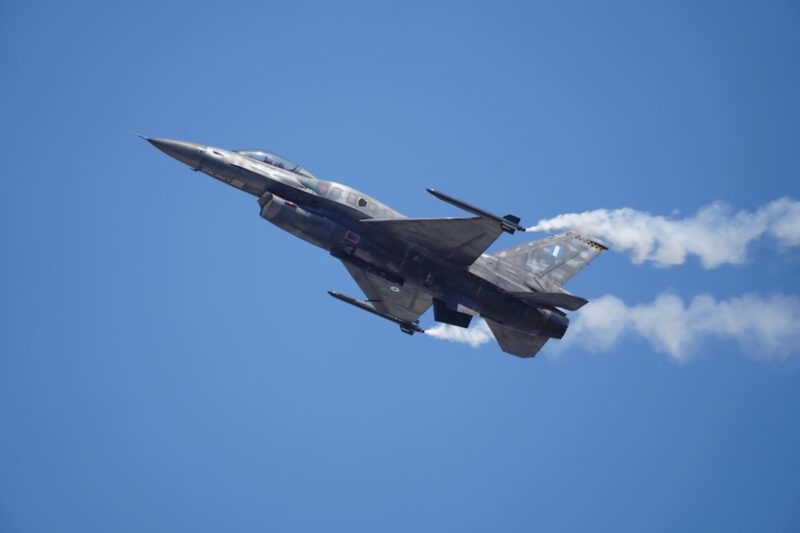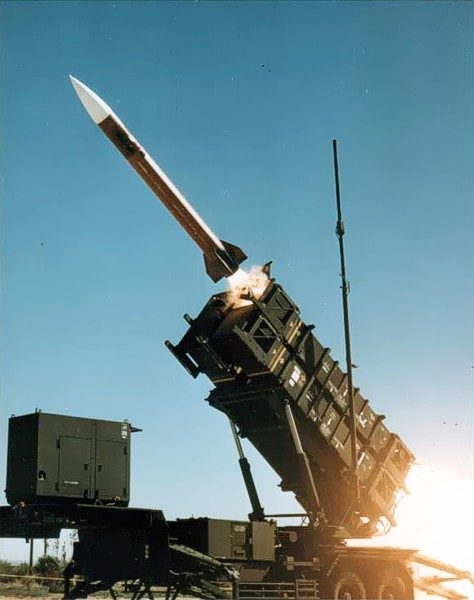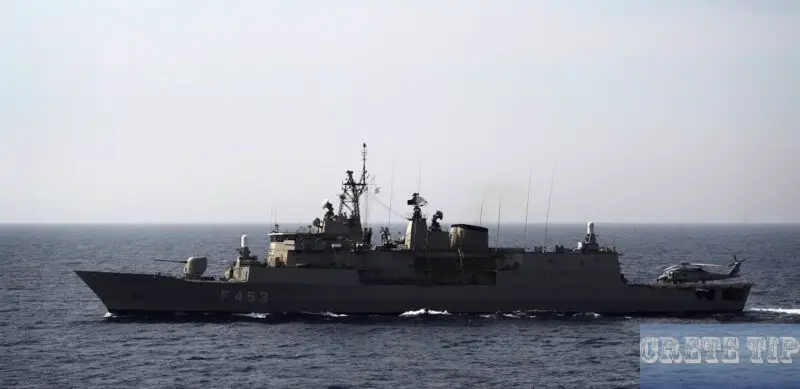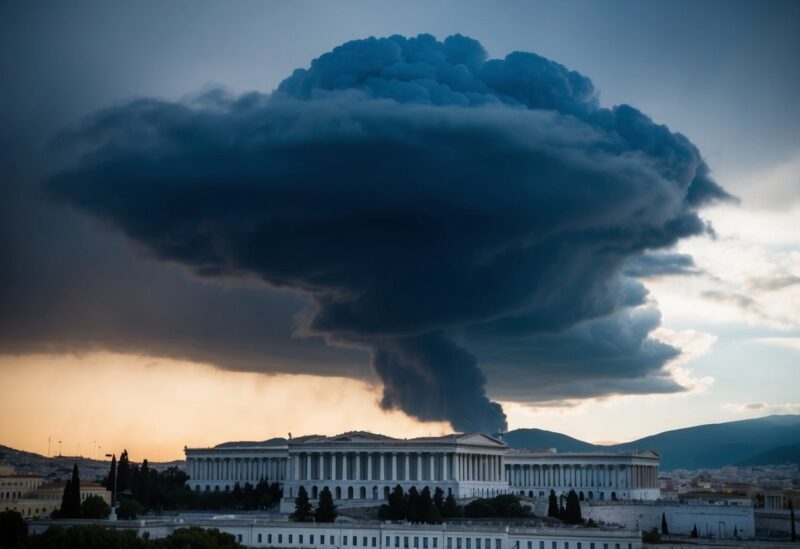Prime Minister Mitsotakis from Brussels on the new migration route to Crete and Turkish-Libyan claims to maritime areas in the region.
The Greek Prime Minister has made it clear that he’s determined to prevent a new migration route toward Crete. He’s talking about using every available measure—mixing incentives with tough actions—to work with Libya and block the flow of migrants.
This stance comes as concerns rise over more people arriving from eastern Libya. The plan includes direct efforts to watch and control the sea borders, which, let’s be honest, isn’t easy in this region.
Greece isn’t just talking at the European level; they’ve actually sent ships outside Libyan waters to keep a closer eye on things. The Prime Minister pointed out that a lot of migrants are coming from Egypt and called on the EU to push for their quick return, since Egypt is considered a safe country.
The whole strategy depends on tight coordination with neighbors and European authorities. It’s a mix of diplomacy, surveillance, and—well, a bit of pressure where needed.
European defence and funding mechanisms

Across Europe, countries are working on new financial tools to boost the EU’s defence capabilities. There are two main options on the table right now.
One idea is joint borrowing, so member states can ramp up defence spending together. Countries like Denmark and Finland, which weren’t always keen, now seem to get why higher defence budgets matter, and might start using these tools.
Greece has played a pretty active role here, helping to relax fiscal rules so there’s more room for defence spending. Thanks to their push, exemptions from deficit limits are now in place through a national escape clause.
This means member states can invest more in defence without running into budget trouble. There’s a specific programme, SAFE, that’s all about joint military procurement, and Greece is currently looking into how it could help their own defence plans.
The Ministry of National Defence is on it, digging into the details and weighing the pros and cons. Recently, the Council added a clause that says any cooperation with non-EU countries on these funding tools only happens if those partners share the EU’s foreign policy and security aims.
This bit is key—it keeps standards high and avoids working with countries that don’t really align with EU policies. For Greece, that’s a pretty important safeguard for their own strategic interests.
Key points about European defence funding:
Aspect |
Details |
|---|---|
Funding tools |
Two main mechanisms being advanced; joint borrowing discussed |
Countries shifting stance |
Denmark and Finland now support increased defence spending |
Greece’s role |
Led efforts to relax fiscal rules for defence budgets |
SAFE programme |
Focus on joint military procurement; under review by Greek Defence Ministry |
Cooperation with third countries |
Allowed only if aligned with EU foreign and security policy standards |
The Turkey-Libya Agreement and Greece-Libya Relations
The agreement between Turkey and Libya has stirred up tension in the Eastern Mediterranean, putting a strain on Greece’s ties with Libya. Greece flat-out rejects the deal, calling it legally invalid and a breach of international law.
This position has been hammered home in European circles, sending a not-so-subtle message to Libya about where Greece stands. Greece keeps asserting its rights by carrying out exploration activities south of Crete, sticking to international principles like the median line to divide maritime zones fairly.
Even with all the disputes, Greece says it’s open to negotiating maritime boundaries directly with Libya—once Libya has a unified government that can actually negotiate.
Unlike past governments, this one managed to set up exclusive economic zones (EEZ) with Egypt and Italy. Those deals have set clear maritime borders and improved regional cooperation, which honestly feels like progress in a pretty complicated neighborhood.
Greece’s Foreign Minister is planning a trip to Libya soon, hoping to build closer ties and support some stability there. The hope is that this will lay the groundwork for better cooperation and maybe even dial down some of the regional tension.
Key Points |
Details |
|---|---|
Greece’s stance |
Considers Turkey-Libya agreement invalid |
Sovereignty actions |
Exploration south of Crete following median line |
Willingness to negotiate |
Open to talks with unified Libyan government |
Previous agreements |
Successful EEZ deals with Egypt and Italy |
Diplomatic efforts |
Greek Foreign Minister’s visit aims to boost ties |
The Turkey-Libya deal tries to redraw maritime boundaries in a way that leaves Greece out, which has sparked diplomatic friction. It’s a bit like what happens when Turkish naval forces show up near Greek islands—never a dull moment in this part of the world.
Greece keeps pushing back by sticking to international norms and shoring up relations with neighbors that actually respect those standards.
Middle East Relations and Diplomatic Efforts

The Greek Prime Minister has doubled down on Greece’s commitment to resolving Middle East conflicts through diplomacy. The main focus is on easing tensions between Israel and Iran, with a strong emphasis on stopping Iran from getting nuclear weapons—nobody wants to see that happen.
He’s called for an immediate ceasefire in Gaza, tying this to the need to secure the release of hostages there. The Prime Minister is also pressing the EU to ramp up pressure on Israel to halt military operations that put Palestinian civilians at risk.
Here are the main points he’s pushing for:
- Diplomatic resolution: Dialogue over military action, every time.
- Non-proliferation: Keeping nuclear weapons out of the region.
- Ceasefire demand: Quick end to fighting in Gaza.
- Humanitarian concern: Protecting civilians and hostages—no exceptions.
- EU involvement: The EU should step up and help reduce violence, not just watch from the sidelines.
Internal Matters and OPEKEPE
The situation with OPEKEPE is messy—there are allegations of preferential treatment and misuse of resources. The Prime Minister says he doesn’t have the full story yet and isn’t ready to comment in detail until he’s seen all the files.
Authorities are expected to go through the evidence carefully before making any big decisions. It’s a pretty cautious approach, but given the seriousness, maybe that’s for the best.
Key things to keep in mind:
- Allegations: Claims of unfair advantages and possible corruption within OPEKEPE operations.
- Review Process: The Prime Minister wants a full investigation before saying anything more.
- Upcoming Actions: Decisions will come out once the paperwork’s been properly examined.
This whole case really puts the spotlight on the ongoing challenge of keeping public agencies transparent and accountable. The government seems intent on handling it by the book, without jumping to conclusions or making premature statements.
For now, everyone’s watching closely, hoping the process will protect the integrity of the agricultural support system and keep public trust intact.
Answers on Migration Challenges and Libya’s Role

The migration routes from Libya are shifting again. Lately, there’s a new path popping up between eastern Libya and the Greek island of Crete.
European leaders are watching this closely, maybe even a little nervously. They’re gearing up for a coordinated response—whatever that ends up looking like.
Officials from Europe plan to head over to Libya soon, not just to Tripoli but the east as well. The idea is to tighten up control along Libya’s maritime borders, which, frankly, haven’t been the easiest to manage.
They’ve made it clear to Libyan authorities: things can’t just keep going as they are. Cooperation isn’t really optional at this point if anyone wants to get a handle on migration flows.
Meanwhile, Greece isn’t exactly waiting around. Greek ships are already patrolling near Libyan waters, keeping an eye out for incoming boats and trying to stay in touch with Libyan officials.
When a boat is spotted, the hope is that Libyan forces can intercept and turn it back before it gets anywhere near Europe. It’s a bit of a race, honestly.
The strategy here? Well, it’s a mix—some incentives, some threats. The main thing is to make sure this new route doesn’t turn into a permanent fixture.
They’re hoping to nudge Libya into beefing up its border security and handling migration a bit more responsibly. Whether that works, we’ll see.
A lot of the migrants using this route are Egyptian nationals, apparently. The thinking is that these folks should be sent back to Egypt without too much delay.
European leaders are pushing for a joint approach—basically, getting Egypt to agree to take people back, since it’s considered a safe country for returns. There’s a bit of diplomatic wrangling involved, as always.
Key Points |
Details |
|---|---|
New migration route |
Eastern Libya to Crete |
European action |
Planned high-level visits to Libya for border security talks |
Greek measures |
Naval patrols outside Libyan waters to track and coordinate |
Cooperation strategy |
Use of both rewards and penalties to prevent route establishment |
Return policy for Egyptians |
Calls for common EU approach to return migrants to Egypt |
Managing migration like this takes both boots on the ground and some solid diplomacy. The aim is to keep things under control, but also to work with neighbors and, hopefully, stick to legal and humanitarian standards along the way.







